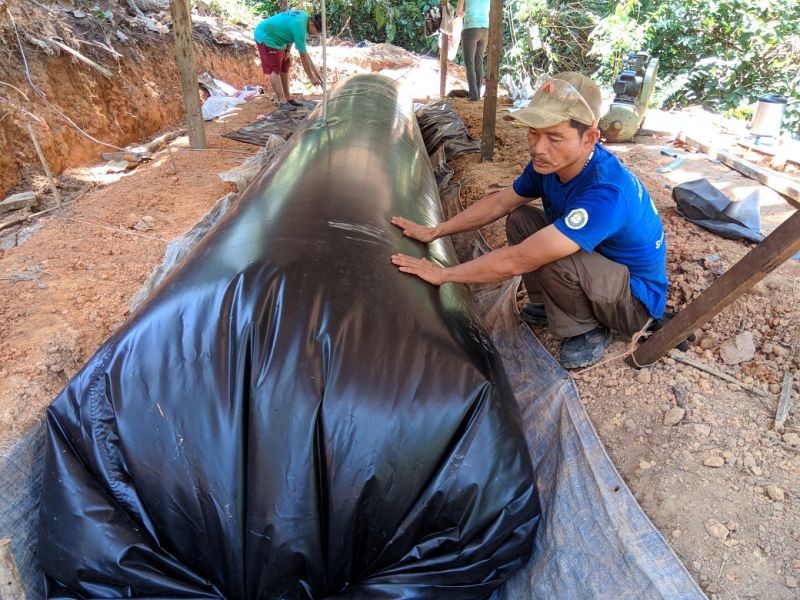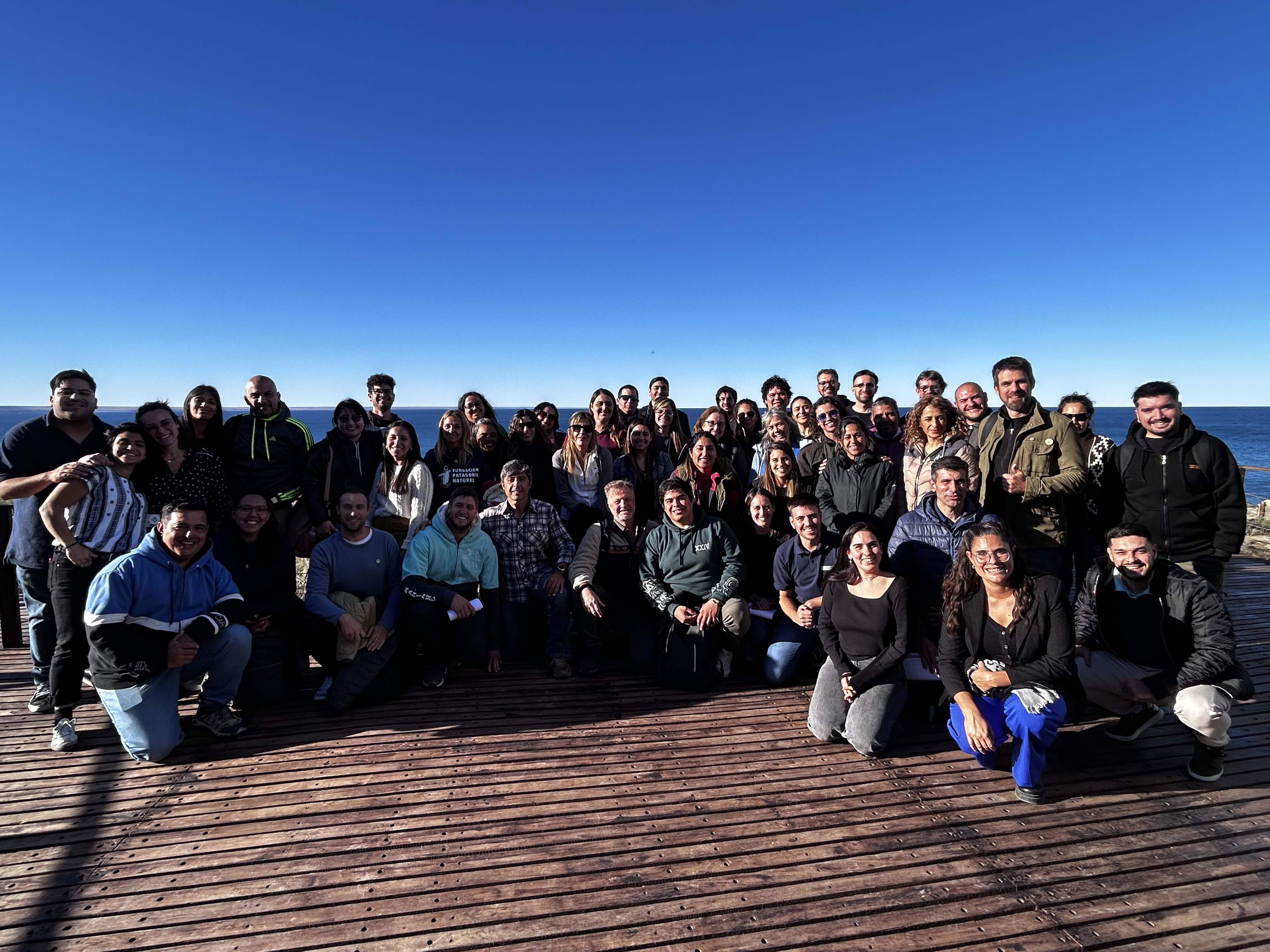More than 45 teachers from 15 schools in Chubut Province, Argentina, participated in the first training to launch our newest capacity building partnership: the YouthEnergy project.
Biodigesters for Southeast Asia: Exchanging Knowledge
There happened a lot since the last report from our partner GreenEmpowerment and their activities in Southeast Asia. After pitching their Biodigester technology in Sri Lanka in 2018 and conducting previous knowledge exchanges, they hosted practice trainings in Malaysia in order to train practitioners on biogas digester systems and showcasing it to local communities.
After holding trainings and workshops on biogas technology in Sri Lanka for participants from Malaysia and the Philippines (see News from March 2018 and News from October 2018 ), the third and final training on the technology hold place now in Nampasan Village (Sabah State, Malaysia). The aim of this training was to design and install a tubular gas biogas digester based on already installed examples in Latin America. With slight improvements to the local conditions in Malaysia on the geomembrane , the biodigester got more durable and puncture resistant to the environmental circumstances. Also the usage of kitchen waste for the biodigesters had to be considered, therefore improved geomembrane has been chosen to use.
The trainers were practitioners from former trainings on biogas digester technology and were supposed to work with the local community members to install biogas digesters in the village. The trainees included staff of KOPEL, PACOS Trust and TONIBUNG CREATE as well as from the local NGO CLEAR. The first day was focused on the theoretical knowledge transfer on the design of the digesters considered the amount of waste and the need for the created fuel. Following this, the theoretical knowledge got applied and both the trainers and trainees installed biogas digesters. For practical reasons the location was at the pig farm of CLEAR, where the biogas digester could directly showcase its capabilities. The results of this installed biogas digester are impressive: 230 liters of biol and 3.095 liters of biogas per day, which is enough to cook for 10 hours or to cook for 5 hours and burn 2 gas lamps for 6 hours each!
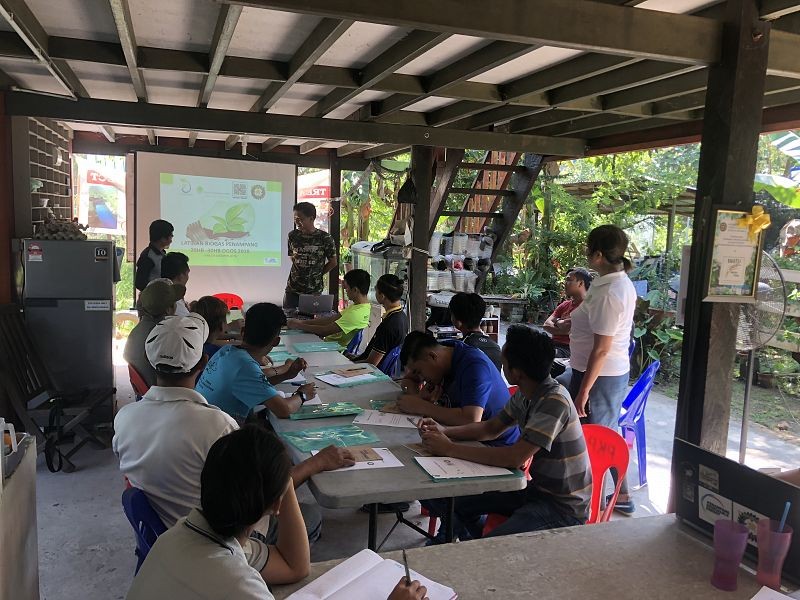
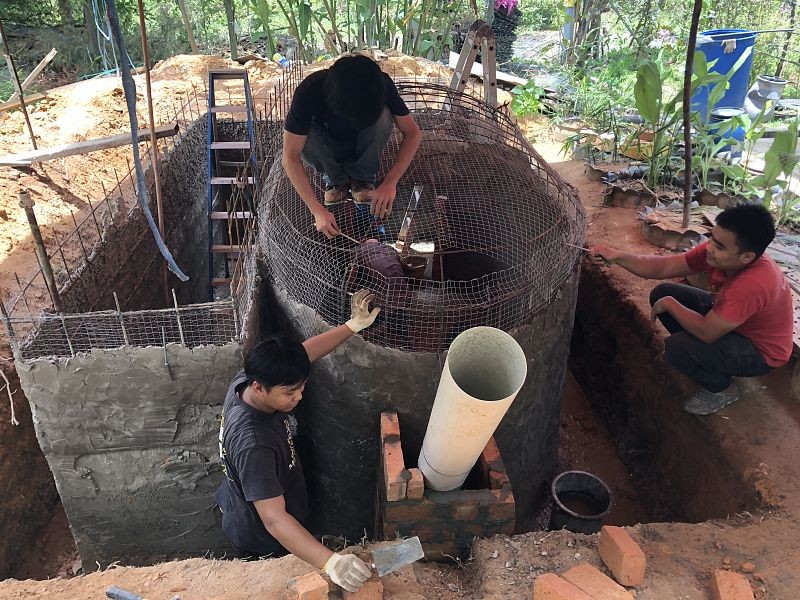
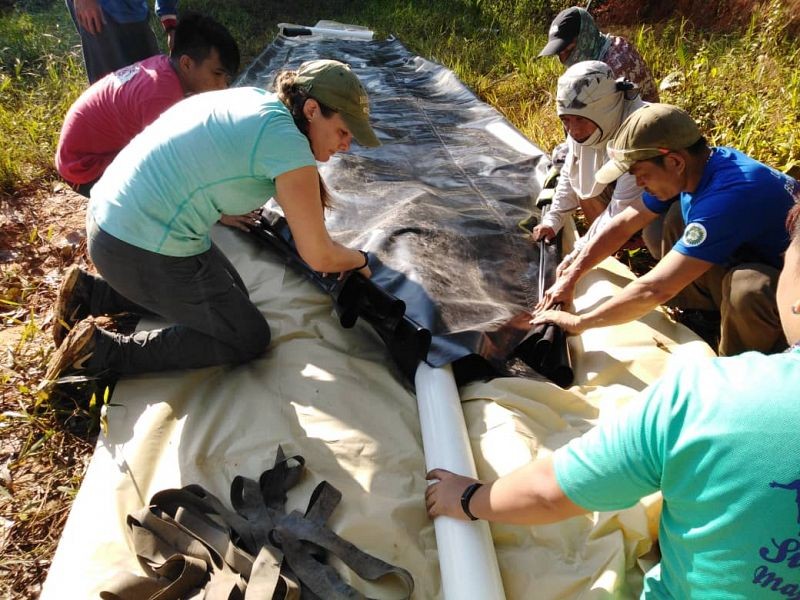
Read more about the project here: Exchange: Waste to Wisdom: Supporting Biodigester Practitioners in South East Asia (SEPS15)
